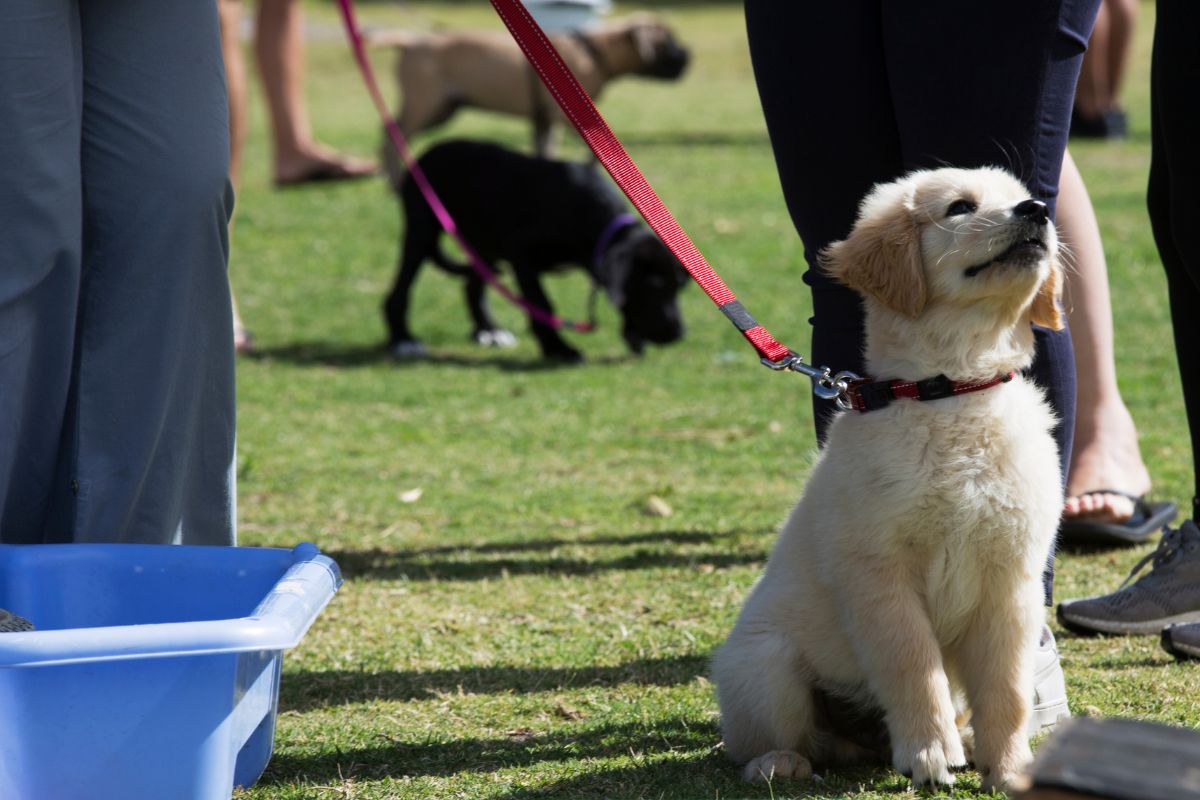If you are seriously considering raising a puppy, you already know this is a life-long commitment and choosing a suitable breed is important. While there are registered dog breeders, we recommend visiting your local dog rescue facility, where you are sure to find the perfect four-legged friend; rescue dogs deserve a second chance with a loving family.
In many ways, raising a puppy is like bringing up children, you have to set boundaries, use positive reinforcement and develop a strong bond with your dog. Here are a few training tips from a professional dog trainer to help you develop a bond with your canine friend.
Never punish the dog
You should never scold or strike your puppy when training; by rewarding positive behavior, he will soon learn what is acceptable and what is not. Dogs are social animals and, in his eyes, you are the leader of the pack, so you do need to be the dominant party.
All dogs love affection and it doesn’t take long to build trust; should you be unsure about training techniques, YouTube hosts a realm of dog training videos and you can watch as many times as you wish. If you are angry, try not to be around your dog, as they can pick up on human vibes and never display anger.
Grooming is important
There is affordable dog grooming in Sydney and a visit every few months is ideal. The groomer will teach you how to care for nails, shampoo techniques and any issues your dog might have. This is especially pertinent with long coat dogs; the groomer knows how to care for all breeds.
Be repetitive
Consistent repetition is the best way to train a dog, they are smart animals and quickly pick up routines. It is important to be aware of your words and actions; avoid scolding your dog, ignore negative behaviour and teach the word ‘no’. As your relationship develops, you can introduce new concepts; keep training sessions short, no more than 15-20 minutes before a break.
Crate training
Make sure the crate is big enough for the dog to turn around and expect a bit of reluctance at first; gentle coaxing might be needed. Of course, you might live in a rural setting and your dog can sit on the back of the ute, or on the back seat of the car. Yummy treats might be the order of the day the first few times he has to go in the crate.
Choose short command words
Dogs rely on sound and once chosen, don’t use other words, be consistent. Sit, stay, come, lie down, are all ideal commands. Repeat the training several times, rewarding success with a treat and it won’t take long. Click here for how to make your relationship special.
Eight to twelve weeks
This is the ideal age to start puppy training; having said that, a 2-year-old rescue dog is easy to train. Lessons your dog should learn include bed and crate training, collar & leash trained, getting accustomed to exterior noise and socialising with other dogs.
Twelve to twenty-four weeks
By this time, you should have a level of control over the dog; obeying commands and waiting for the next command. You can gradually extend the time you expect your dog to stay in a position, always rewarding positive behaviour.
Advanced training
From 6 months old, you can increase the intensity of training; enroll in a local dog training school where you will both learn a lot. Social skills with humans and other dogs can be taught during this time; your dog will already understand that training time is when he must pay attention. Teach your dog how to ask you for something and this will elevate your relationship to another level.
Always make time for your dog
He is part of the family, so you should always have time for him. Play on a daily basis if possible and you should be able to judge how much exercise he needs. Always be the alpha male of the pack while also sharing a close bond and your dog will be an integral part of the family.
Exercise is crucial and when you go on vacation, you need to find a good dog kennel so your good boi can also have a change of scenery. Register with a local vet and make sure he has all the vaccinations and regular check-ups. Click here for information about how to register a dog in NSW.
You can probably find all the items you need at the vet and make sure you have a family meeting to discuss the boundaries for your new family member.
















